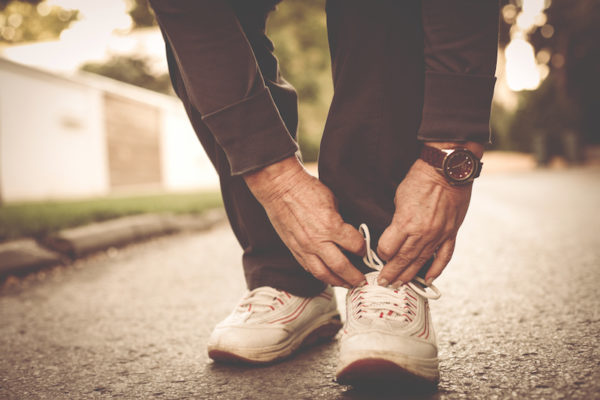Think you could manage a brisk hour-long walk twice a week? If so, it might improve your memory. It’s funny (or not) that it didn’t bother me that much if I forgot something when I was younger. Now it’s a different story. First thought that comes into my mind is “I hope this isn’t the beginning of dementia.”
Anyway … some studies have shown that brisk aerobic exercise can cause changes deep in the brain, particularly in the hippocampus, which is responsible for storing and retrieving memories. Unfortunately, like many parts of our bodies, it usually atrophies as we age. That means it shrinks, which can lead to memory loss.
In one study, researchers at the University of Pittsburgh and University of Illinois at Urbana-Champaign measured the cardiorespiratory fitness of 165 adults between the ages of 59 and 81. Then, using MRI, they analyzed the volume of the hippocampus of each participant and conducted some memory tests.
They found that the most physically fit people had a larger hippocampus and the people with a larger hippocampus did better in spatial memory tests. Spatial memory is our ability to record information about our surroundings. For example, imagine yourself in a parking lot filled with cars. It’s your spatial memory that helps you recall what your car looks like and where you parked it.
The same researchers had done a previous study in which they took 120 healthy, but sedentary people between the ages of 55 and 80 and divided them into two groups. Half of them walked 40 minutes a day, three days a week for one year. The others only did stretching and toning exercises.
They did brain scans on the participants before and after the study so they could compare the size of the hippocampus. At the end of the year, in those who only did the stretching and toning, the hippocampus had shrunk 1.4 percent, which is consistent with normal aging.
The people who walk fared better. No shrinking of the hippocampus. Instead, it increased in size by 2 percent. According to the researchers, the size increase amounts to turning back the clock about two years. What that means, they say, is that a shrinking hippocampus is not inevitable. The shrinking can be reversed with just moderate exercise. Like taking a brisk walk for an hour twice a week.
What isn’t known for sure is what happens to the hippocampus when you stop exercising and what benefits there might be for people who exercise more intensely and more often.
But what they do know is good enough for me. Instead of working from home every day, I now have a co-working space in town and I park several blocks away. The incentive is that it’s free parking, but the added bonus is that I get to take a brisk walk twice a day. (How’s that for positive thinking?)
More walking benefits
It’s not only our memories that may benefit from a brisk walk or some other form of regular aerobic exercise. Here’s what can happen:
- Lower risk of developing heart disease, stroke, and diabetes.
- Weight loss
- Lower blood pressure
- Better mood
- Less stress and anxiety
- Better sleep
How could you resist the temptation? Put on your hat and coat and some walking shoes. Make sure to stop and say hello if our paths cross!



I just got back from an hour walk and it must have worked because I remembered to check out your site when I got back! Thanks for this info it will help to keep me motivated to walk more! Cathy
Did not know this! Funny though, I’m 60, mostly sedentary for the past couple of years and almost (really) never lose my cell phone, car in a parking lot, or stuff. My wife is 10 years my junior, and watching her, almost every day search for her cell phone, and get lost driving is hilarious. However, now that I know about this, it changes a lot.